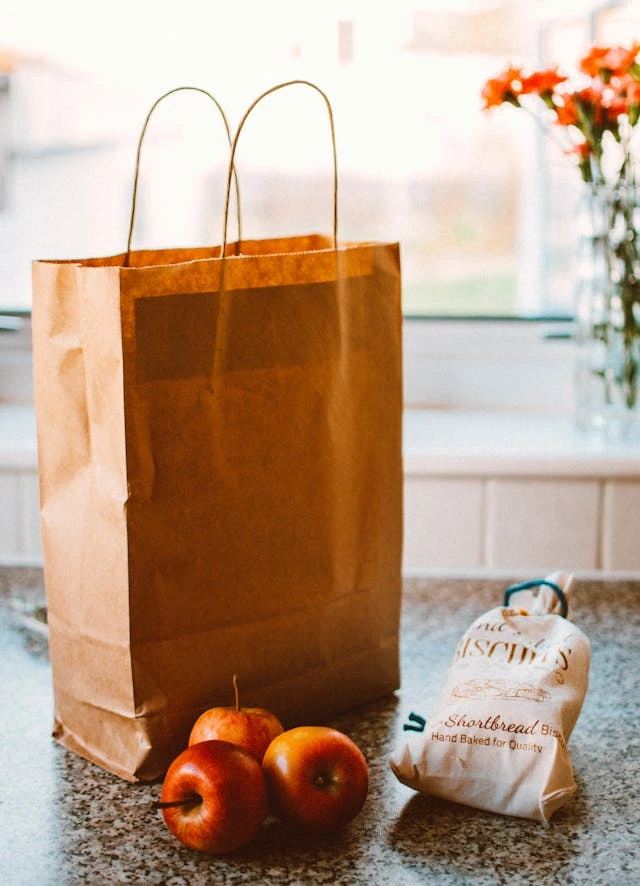HOW TO SAVE MONEY ON GROCERIES
Saving money on groceries is one of the most effective ways to manage your household budget. With a bit of planning, smart decision-making, and mindful habits, you can significantly cut your grocery bill without sacrificing quality or taste. Here are 14 practical strategies to help you save money on groceries each time you shop.

1. Always Shop with a List
The most essential rule of grocery shopping is never walk into a store without a list. Creating a shopping list based on your meal plan not only saves time but also helps you avoid impulse purchases. Without a list, you’re more likely to pick up items you don’t need, which leads to overspending. Before heading to the store, check your pantry and fridge to ensure you’re not buying duplicates. Stick to the list, and your wallet will thank you.
2. Avoid Peak Times
Shopping during peak hours—typically evenings and weekends—can be stressful and distracting. Crowded aisles, long lines, and impatient shoppers can lead to rushed decisions. Instead, shop during off-peak hours, such as weekday mornings or late evenings. You’ll have more time to compare prices, review sales, and make thoughtful decisions, which ultimately saves you money.
3. Go to the Grocery Store Solo
While it may seem convenient to shop with your partner or kids, doing so can lead to unnecessary spending. Extra people mean extra opinions—and more impulse buys. Children may beg for snacks or treats, and even adults might influence you to grab “just one more thing.” Shopping solo gives you complete control over your list and your spending.
4. Buy the Generic Brand
Generic or store brands are often just as good—if not better—than name-brand products. They typically contain the same ingredients but come at a lower price because you’re not paying for branding and advertising. Items like canned goods, cereals, cleaning supplies, and baking essentials are ideal for switching to store brands. Try them once, and you’ll likely never go back to name brands.
5. Opt for Frozen Instead of Fresh Where Possible
Frozen fruits and vegetables are just as nutritious as fresh ones and often much cheaper—especially when the produce is out of season. They’re also pre-washed, pre-cut, and have a longer shelf life, reducing food waste. Buying frozen instead of fresh can be a game-changer for both your budget and your meal prep time.
6. Shop on the New Sales Day
Most grocery stores update their sales and promotions on a specific day each week—often Wednesday or Thursday. Shopping on this day allows you to get the first pick of discounted items. Check your local store’s flyer or app to know when their deals start. Planning your weekly grocery trip around the new sales can lead to significant savings.
7. Buy Fresh Produce When It’s in Season
Out-of-season produce can be expensive because it’s often imported from far away. Stick to buying fruits and vegetables that are in season locally—they’re fresher, tastier, and usually much cheaper. For example, buy berries in summer and root vegetables in winter. You can even buy in bulk during peak season and freeze the extras for later use.
8. Buy Breads and Desserts That Can Be Frozen
Fresh bakery items are best consumed quickly, but they also freeze well. Bread, muffins, cookies, and even cakes can be stored in the freezer without sacrificing flavor or texture. Buying these items in bulk when they’re on sale and freezing them can reduce frequent trips and eliminate waste, ultimately saving money.
9. Buy in Bulk
Buying in bulk is a great way to cut costs—especially on non-perishable goods like rice, beans, pasta, flour, and household staples like toilet paper and cleaning supplies. Warehouse stores and bulk bins at regular grocery stores often offer lower per-unit prices. Just be sure to only buy what you can realistically use before it expires to avoid waste.
10. Look at Deals Only for What You Need, Not the Whole Store
Sales and promotions are tempting, but they can also trick you into buying items you don’t need. Stick to the sales that apply to your list. Just because something is 50% off doesn’t mean it’s a good deal for you. Ask yourself: “Would I buy this if it weren’t on sale?” If the answer is no, leave it on the shelf.
11. Limit Deli Meat and Artisanal Cheese Purchases
Deli meats and fancy cheeses can seriously inflate your grocery bill. While they’re delicious, they’re also costly per pound. Instead, look for cheaper protein options like canned tuna, chicken thighs, or eggs. For cheese, opt for block cheese instead of pre-sliced or shredded, and shred it yourself to save money.
12. Shop with a Store Rewards Card
Many grocery stores offer loyalty or rewards cards that provide members-only discounts, digital coupons, and points you can redeem later. These cards are free to sign up for and can lead to substantial savings over time. Some even track your purchases to offer personalized discounts on items you regularly buy.
13. Opt for Whole Gallons Rather Than Half
Buying in larger quantities is usually more economical. A gallon of milk, for example, typically costs less per ounce than a half-gallon. The same goes for juice, yogurt, and other dairy products. If you can store and use the larger size before it expires, it’s a smart way to stretch your grocery budget.
14. Stick to a Similar Grocery List Every Time
Creating a recurring grocery list of staples helps you maintain control over your spending. By buying similar items week after week, you’ll know when prices rise or fall, making it easier to spot deals. A consistent list also reduces decision fatigue and shopping time. Add variety by switching up your spices or sauces, but keep the core items predictable and budget-friendly.

Final Thoughts
Grocery shopping doesn’t have to be a drain on your finances. With a little preparation, smart habits, and awareness, you can trim your grocery bill significantly while still eating well. Use these 14 tips as a weekly checklist to build better shopping habits and enjoy consistent savings. Remember: every dollar saved at the grocery store adds up over time—and those small wins can lead to big financial gains.









